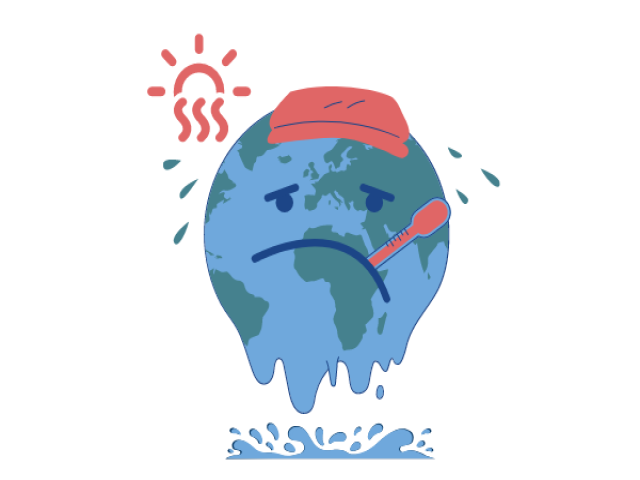The Urgency of Addressing Global Warming: A Call to Action

Global warming, also known as climate change, is one of the most pressing issues of our time. It is the long-term increase in Earth's average surface temperature due to human activities, primarily the burning of fossil fuels, which release large amounts of greenhouse gases (such as carbon dioxide, methane, and nitrous oxide) into the atmosphere.
The effects of global warming can be seen all around us, from melting ice caps and rising sea levels to more frequent and severe heat waves, droughts, floods, and storms. These changes not only threaten the environment but also have profound economic, social, and political implications, as they exacerbate poverty, inequality, and instability, and disrupt ecosystems and biodiversity.
The scientific consensus on global warming is clear: the Earth's temperature is rising, and human activities are the primary cause. According to the Intergovernmental Panel on Climate Change (IPCC), the global average surface temperature has increased by about 1.1°C (2.0°F) since the pre-industrial era (1850–1900), and is projected to rise by another 1.5°C (2.7°F) to 4.5°C (8.1°F) by the end of the century, depending on the level of greenhouse gas emissions and other factors.
To limit the worst impacts of global warming, the international community has agreed to the Paris Agreement, which aims to keep the global temperature rise well below 2°C (3.6°F) above pre-industrial levels, and pursue efforts to limit it to 1.5°C (2.7°F), while enhancing the ability of countries to adapt to the adverse effects of climate change and foster climate resilience and low greenhouse gas emissions development.
To achieve this goal, countries must reduce their greenhouse gas emissions through various measures, such as transitioning to renewable energy sources, improving energy efficiency, promoting sustainable agriculture and forestry, and reducing deforestation and land-use change. In addition, countries must enhance their climate adaptation and resilience measures, such as building sea walls, developing drought-resistant crops, and improving disaster risk management.
However, the task of addressing global warming is complex and challenging, as it involves various economic, social, and political factors, and requires cooperation and coordination among countries and stakeholders at all levels. It also requires a fundamental shift in the way we live, work, and consume, and a willingness to make sacrifices and investments for the benefit of future generations and the planet.
In conclusion, global warming is a major challenge that requires urgent and collective action from all countries and individuals. While the situation may seem daunting, there is still hope that we can mitigate and adapt to the impacts of climate change if we act decisively and collaboratively. Let us take action today to protect the Earth and secure a sustainable and prosperous future for all.

Why Would You Take Online Yoga Teacher Training?
- People are nowadays obsessed with having a lifestyle that involves good health, nature’s laws, balancing life’s schedule, etc.

Fenugreek Seeds Characteristics And Amazing Uses For Everyone
- The use of fenugreek for medicinal purposes is noted in the documents of Ancient Egypt.

How To Practice Moon Salutation
- Here in this artilce you will get you know about the moon salutation pose or goddess pose.

COVID deaths and cases are rising again at US nursing homes
- COVID-19 infections are soaring again at U.S. nursing homes because of the omicron wave, and deaths are climbing too, leading to new restrictions